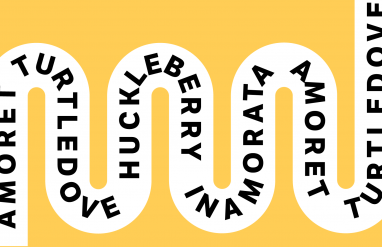After graduation, people are often asked, “What’s next?!” It can feel like a lot of pressure, especially if they feel unsure about their future. It’s not just graduates who have this problem; writers after their book comes out, actors when their show closes, anyone who just quit their job might get asked the dreaded “What’s next?” question. Faced with these kinds of expectations, it’s perfectly fine to say “I’m taking some time for myself.” To help respond to nosy parkers, we have collected 10 different words or phrases you can use to communicate that you’re taking a beat.
The expression taking some time [for yourself] is a casual, polite way to express the idea that you will be focusing on your personal needs and wants in the near future. It can be found in use as far back as the late 1800s. Saying “I am taking some time for myself” also has the advantage of being vague enough that it can apply to nearly any activity. Reading, going on a round-the-world trip, birdwatching, you name it—these could all fall under the heading of taking some time for yourself. But maybe you want to be more specific or express a particular kind of break. For that, you can use one of the expressions below.
take/get some downtime
The word downtime literally means “a time during a regular working period when an employee is not actively productive.” For example, if you are scrolling Insta and drinking a coffee at work, this would be considered downtime. An older term for this practice was dead time, but thankfully this expression has largely passed out of use. While the term downtime was developed in the context of work, and particularly the industrialized workplace, taking some downtime or getting some downtime has come to describe any temporary pause from work or strenuous activity in order to rest and recharge.
breathing space
Getting some breathing space is important, especially after a sustained period of hard work or accomplishing a major goal. Breathing space, also known as a breathing spell, is “an opportunity to rest or think.” While this expression might sound a little New Age-y to our ears, it was actually first recorded around 1640. The idea expressed by breathing space is that you are pausing—literally or figuratively—to catch your breath and recombobulate yourself.
hiatus
Another term for taking a break is hiatus [ hahy-ey-tuhs ], “a break or interruption in the continuity of a work, series, action, etc.” You can use the verbs take or go with hiatus, as in “I am taking a hiatus” or “I am going on [a] hiatus.” The word hiatus comes from the Latin hiātus meaning “opening, gap.” Before it had its present meaning, the word hiatus in English had a meaning closer to the original Latin to literally describe a “chasm” or “aperture.”
What’s the difference between break and brake?
pause
If the word hiatus is a bit too formal for your purposes, you may prefer to use the everyday pause, “a temporary stop or rest, especially in speech or action.” It is worth noting, however, that pause implies a short break, whereas hiatus implies one of indefinite length. Most commonly, pause is paired with the verb take, as in I took a pause after graduation.
recess
You probably remember recess from grade school, but graduates and other adults can take a recess too. Recess means “temporary withdrawal or cessation from the usual work or activity.” One could say they are on a recess, taking a recess, or going on a recess. The word recess comes from Latin recessus, meaning “a withdrawal.” Taking a recess can signal a longer break than a pause.
sabbatical
If you work or study in an academic setting, you may already be familiar with the term sabbatical. A sabbatical is “any extended period of leave from one’s customary work, especially for rest, to acquire new skills or training, etc.” As you may have guessed, sabbatical is related to the Sabbath, which literally refers to “the day of rest and religious observance among Jews and some Christians,” either Saturday or Sunday, depending. A sabbatical is typically understood to be a year-long break, but it can be any length of time.
gap year
A less-formal way to describe taking a year off, particularly before beginning one’s undergraduate education after high school graduation, is with the phrase gap year. Gap year means “a period of time, usually an academic or calendar year, in which a student takes a break from school to travel, work, or volunteer.” The concept of a gap year is relatively novel; the expression was first recorded around 1975.
hols
The term gap year is more common in the United Kingdom and Australia than it is in the United States. The same is true for the British slang hols, short for holiday or holidays, “a period of cessation from work or one of recreation; vacation.” For example: after graduation, I am going on hols in the Caribbean for three weeks. As you may have guessed, the word holiday comes from Old English for “holy day,” but it no longer has any religious connotation.
If your vacation is close to home, you can use some of these terms to describe your break.
sojourn
A more sophisticated way to say hols is to use the word sojourn. Sojourn means “a temporary stay.” It is also used as a verb to mean “to stay for a time in a place; live temporarily.” Sojourn comes from Old French sojorner “to rest, stay.” While a sojourn can imply a break from work, it more generally refers to spending time in a certain place, whether working or on vacation. When used as a verb, sojourn should not be used with an object. For example: we sojourned in Madrid for three weeks.
self-care
Taking a break after graduation or any other major life event is not only reasonable, it is an exercise in self-care, “the act of attending to one’s physical or mental health.” This concept contrasts somewhat with the more goal-oriented self-improvement. While some might expect you to use time for yourself to work on self-improvement, there is a growing push to use this time more for self-care in order to rest and recharge before embarking on something new.
If you’re looking for more guidance on how to answer nebby questions about your future, check out our article “9 Ways to Answer: What Are You Doing With Your Future?” You can also review this language with our refreshing, stress-free word list here.
Regardless of the choice of words you use to describe taking a break, remember that it’s perfectly fine to do so—we all need time to ourselves every now and again.













